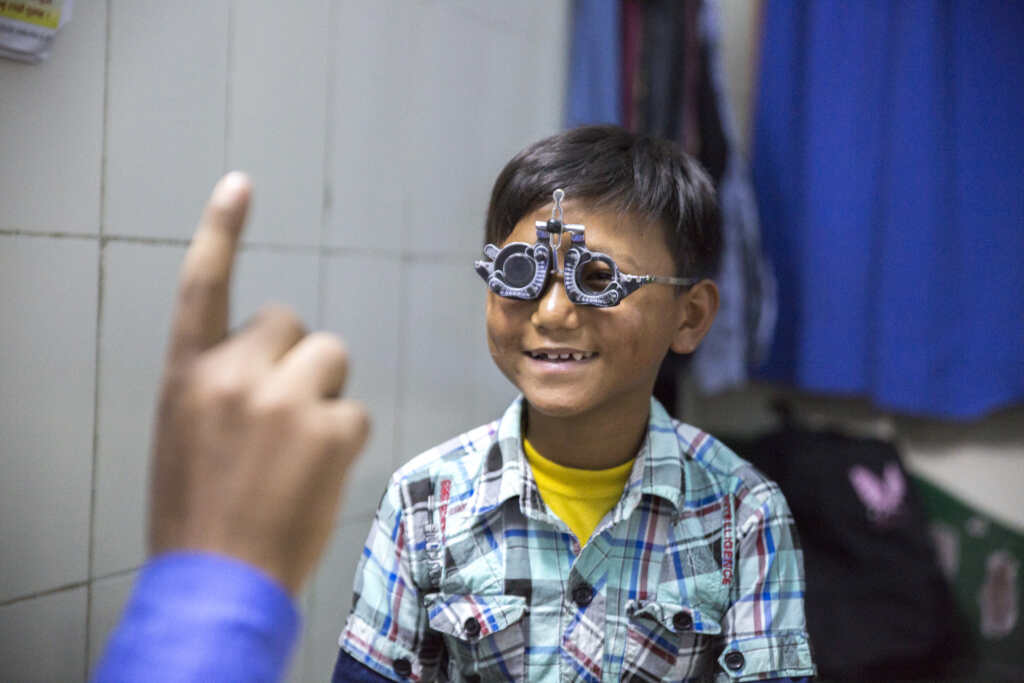
A new strategic plan for Inclusive Eye Health (IEH) for 2023 – 2025 was developed. Our new plan has three priority areas:
- Inclusiveness in Eye Health
- Continuum of Care
- Holistic Approach
The IEH team continued to collaborate closely with the advocacy team and with the World Blind Union (WBU) and the World Federation of the Deaf (WFD) to develop a pilot for Accessibility GO! A guide to action in eye centers to ensure inclusiveness in eye health. A strong focus is given in our programmes to ensure that patients with irreversible vision loss will not be left to their own, once clinicians have determined that clinically nothing can be done for them anymore, but that partnerships are developed between eye centers and rehabilitation providers. In addition, as it is well known that persons with vision loss have a much higher likelihood to be depressed, the IEH and Community Mental Health teams are piloting different eye health projects, mental health screening and support.
We expanded our collaboration with the ArcLight project with Dr. Andrew Blaikie supporting the training of trainers in both Malawi and Zimbabwe in primary eye care for the primary care level and on the use of the ArcLight. As primary eye care is one of the priorities within the World Health Organization’s (WHO) Integrated People Centred Eye Care (IPEC), we’re looking at continuing to collaborate in more countries and in more areas with the ArcLight project in 2023.
In Neglected Tropical Diseases (NTDs), in 2022, CBM Global supported the delivery of treatments to prevent onchocerciasis (also known as river blindness) and/or Lymphatic filariasis to 2.5 million people in northern Nigeria. The drugs used for the treatment and prevention of these diseases are generously donated by GSK and Merck & Co., Inc. In addition, we partnered with HANDS, a local organization, to develop a holistic project in one district in Yobe State in Nigeria, to support those already affected by NTDs, supporting mental health and wellbeing, inclusive Water, Sanitation and Hygiene (WASH), livelihoods, lymphedema management and hydrocele surgery.
In Kenya, a survey in Meru district showed that after two years of discontinued treatment for trachoma, the prevalence was still below the threshold and having eliminated trachoma as a public health program. Continued support in inclusive WASH activities are aimed to ensure that these gains are sustained.
Working together with the World Health Organization and the Disease Management, Disability and Inclusion (DMDI) cross-cutting working group of the NGO NTDs Network (NNN), CBM Global supported a draft of an Essential Care Package on Mental Wellbeing and NTDs. This draft has been piloted in Nigeria and Ghana and is targeted to be finalized in 2023.
The IEH team started quarterly meetings for CBM Global IEH focal points and partners to share lessons learned. We had staff from the International Agency for the Prevention of Blindness (IAPB) present the new strategic plan, 2030 InSight, Dr. Andrew Blaikie on the ArcLight and PEC training in Malawi and Zimbabwe, and the EREC-P project in Nepal about the Continuous Quality Improvement (CQI) work in the hospital and how this has helped improve the quality of their work.
